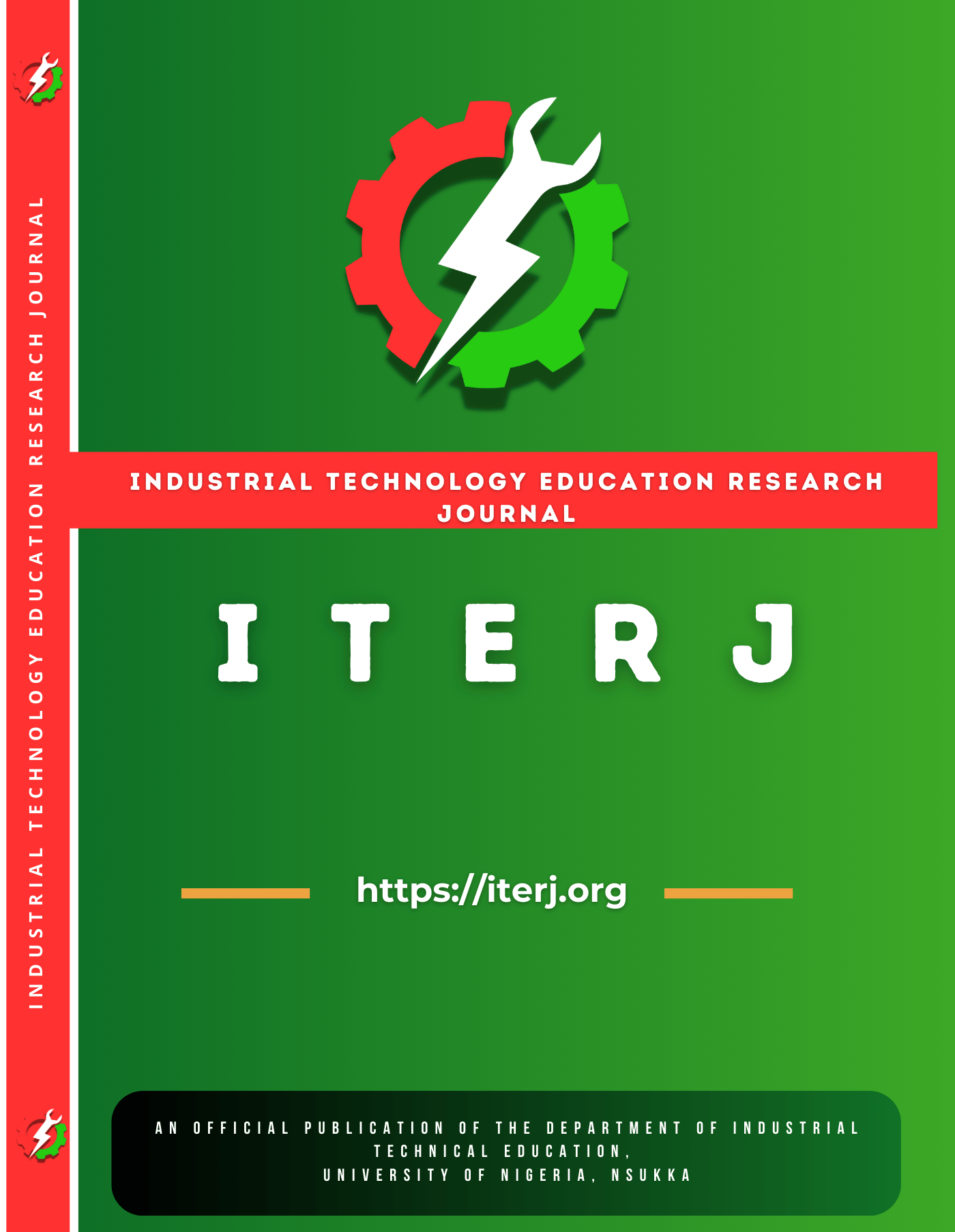Job Demands and Resources as Predictors of Job Burnout among Metalwork TechnologyInstructors in Nigerian Correctional Services
Keywords:
Job Demands, Job Resources, Metalwork Technology, Job BurnoutAbstract
The study was carried out to investigate job demands and resources as predictors of job burnout among metalwork instructors in Nigerian correctional services, Suleja and Kuje custodian centers. Six research questions were answered, while seven null hypotheses were formulated and tested at a 0.05 level of significance. The study adopted a correlational design. The population for the study was made up of 31 metalwork technology instructors from Nigerian correctional services, Suleja and Kuje custodian centers. The Job Demands-Resources Questionnaire and the Maslach Burnout Inventory were adapted and administered to the respondents to determine the relationship between job demands, job resources, and job burnout among metalwork instructors. The instruments for data collection were face-validated by three experts in the Department of Industrial Technical Education, University of Nigeria, Nsukka. The Cronbach Alpha Reliability technique was used to determine the internal consistency of the instruments. A reliability coefficient of 0.84 was obtained for the Job Demands-Resources Questionnaire, and 0.92 for the Maslach Burnout Inventory. An overall reliability coefficient of 0.91 was obtained for all instruments combined. The statistics used to analyze the data for the study were Pearson Correlations, Regression Analyses, and Mediation Analysis using Path Analysis. The findings of the study revealed that a strong and positive relationship exists between job demands and job burnout of metalwork technology instructors in Nigerian correctional services. The findings also revealed that a very weak and positive relationship exists between job resources and job burnout of metalwork technology instructors in Nigerian correctional services. The hypotheses tested revealed that job demand is a significant predictor of job burnout, job resources are not a significant predictor of job burnout, job demands are a significant predictor for male instructors, while job demands are not a significant predictor for female instructors, job resources are not a significant predictor of job burnout for both male and female instructors, and job resources do not significantly mediate the relationship between job demands and job burnout.








